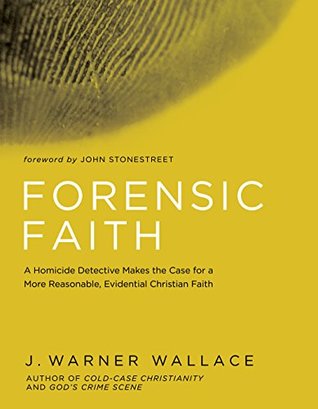More on this book
Community
Kindle Notes & Highlights
Read between
July 7 - July 10, 2019
Evidence Instruction #6: Witnesses Are Reliable Unless Demonstrated Otherwise
simple four-part template (derived from the California Jury Instructions) for evaluating eyewitnesses. If it can be established that (1) a witness was actually present to see the event, (2) can be corroborated (even in a limited way) by another witness or additional evidence, (3) has not changed his story but has been honest and accurate over time, and (4) doesn’t possess a bias that might cause him to lie, you are to consider the witness reliable.
help them understand an important truth: an eyewitness can be wrong about a particular detail and still be considered reliable.
Do not automatically reject testimony just because of inconsistencies or conflicts. Consider whether the differences are important or not. People sometimes honestly forget things or make mistakes about what they remember. Also, two people may witness the same event yet see or hear it differently.
Given this legal instruction, even if I didn’t believe the Gospels were error-free, I’d still have to conclude they’re reliable and trustworthy.
Along the way, take the time to instruct them about three important attributes of true, reliable eyewitnesses. While these characteristics may seem “troubling” at first, they are just the opposite:
Reliable Eyewitnesses Seldom Appear to Agree
Reliable Eyewitnesses Raise Questions
Reliable Eyewitnesses Are Sometimes Incorrect
If inerrant witnesses were required to convict defendants, we’d never be able to prosecute anyone for anything.
Forensic Faith Principle #3: Make an Opening Statement Enthusiastically
James Boccardo. He wrote a book entitled Unsilenced: How to Voice the Gospel.
Forensic Faith Principle #4: Present the Evidence Powerfully
I have to make sure my evidential confidence doesn’t result in obnoxious arrogance. This is always a danger, especially when interacting with people online. The New Atheist movement is replete with aggressive ambassadors who are quick to lose their temper and happy to ridicule. It’s tempting to “fight fire with fire” when interacting with some of these harsh critics of Christianity. Don’t do it. Retain your sense of humor. Be gracious, even if you catch someone lying. Don’t match arrogance with arrogance. Learn to take a punch and laugh it off. You’ll be much more likeable and a much better
...more
Good communicators “throw the ball so people can catch it”
“You need to be repentant.” As an atheist, I found this expression both archaic and offensive.
“Invite Jesus into your heart.” This sounds confusing, sappy, and emotional.
argument for God’s existence from objective moral truths (commonly known as the Axiological Argument).
Do objective moral laws really exist?
Couldn’t these objective values be the result of something other than God?
(1) What do you mean by that? and (2) Why do you think that’s true?
In God’s Crime Scene, I describe three characteristics of errant case making.
trying to defend something untrue, they either (1) make a claim that isn’t supported by the evidence, (2) errantly redefine key terms to conform to their argument, or (3) make claims that are logically inconsistent.
Challenge #1: Faith Is Incompatible with Reason
Christians Are Hypocrites
Everyone has an area of their lives where their beliefs are in contradiction with their actions.
Science and Religion Are Incompatible
Challenge #4: Christians Are Intolerant
A true definition: The classic definition of tolerance is much more akin to a “fair, objective, and permissive attitude towards those whose opinions, practices, race, religion, nationality etc. differ from one’s own.” 1
Evidence Locker Resources to Help You Become a Better Case Maker
Books to Help You Become a Better Christian Communicator
Books Making the Case for Christianity from the Perspective of a Prosecutor
Resources to Help You Answer Atheist Objections
Is God Just a Human Invention? And Seventeen Other Questions Raised by the New Atheists
Internet Ministries to Help You Grow as a Christian Case Maker
An Example of a Spiritual Survey to Help Start a Conversation
Soul Searching: The Religious and Spiritual Lives of American Teenagers


